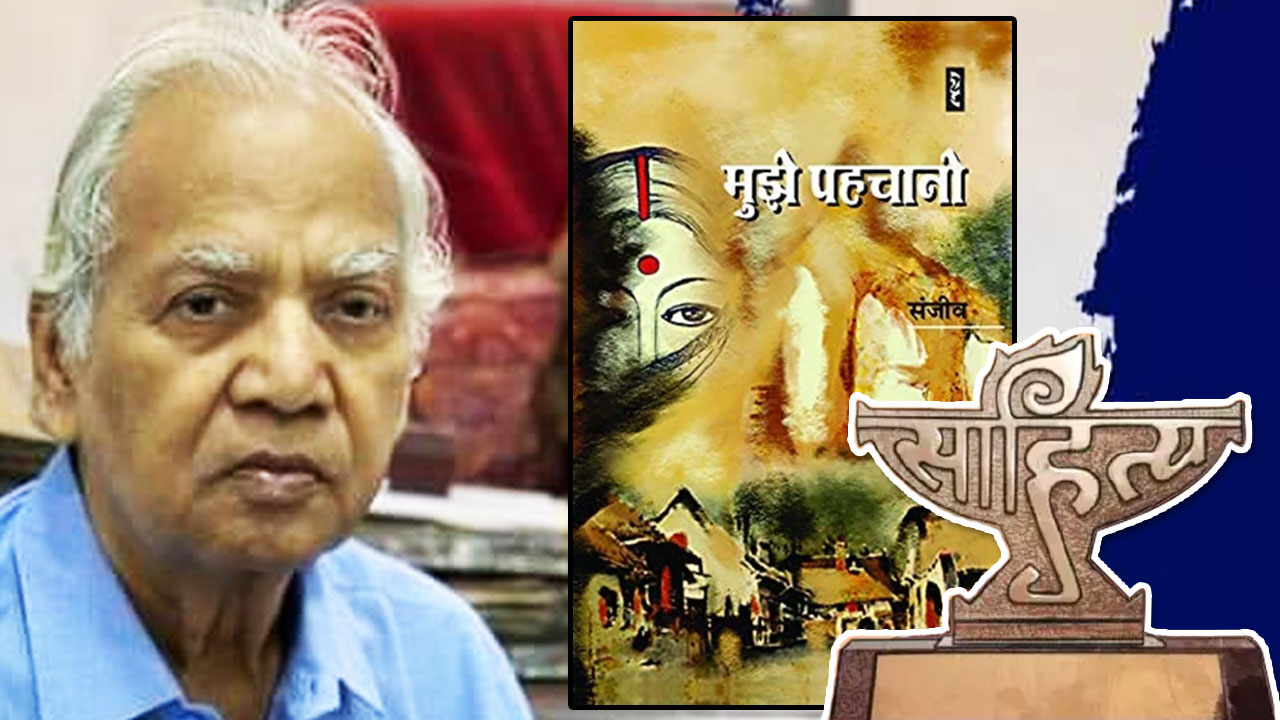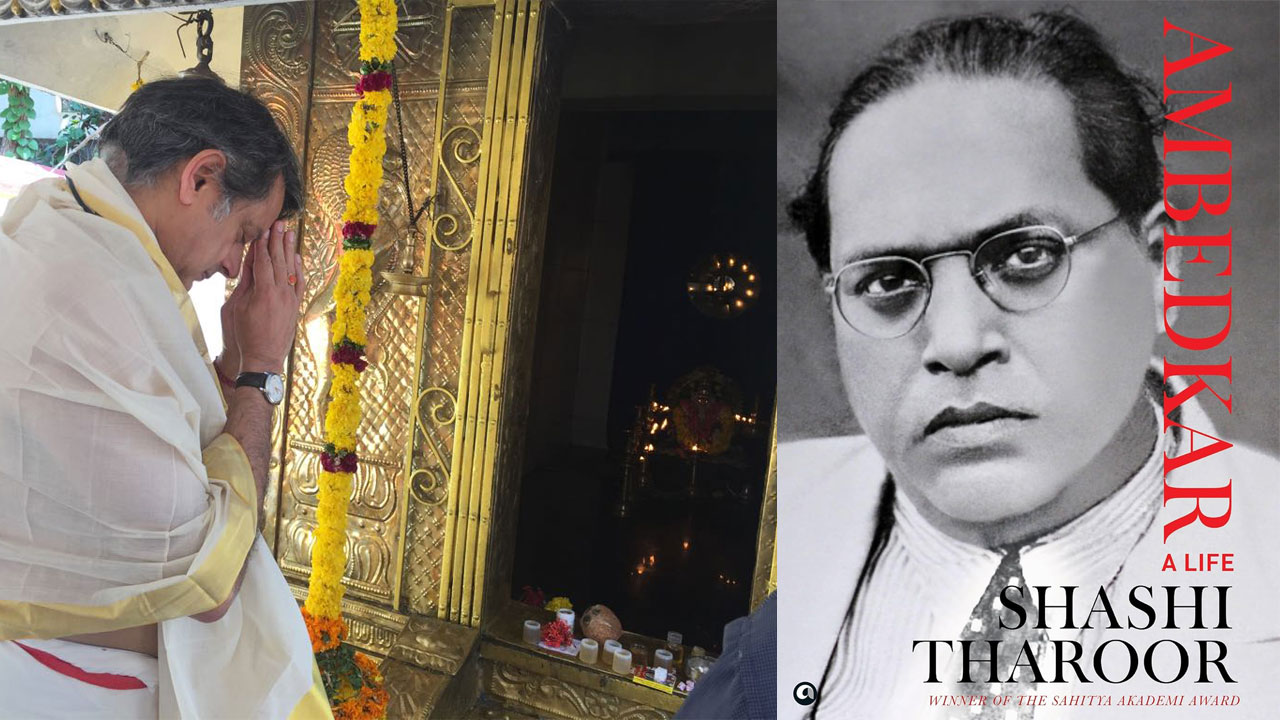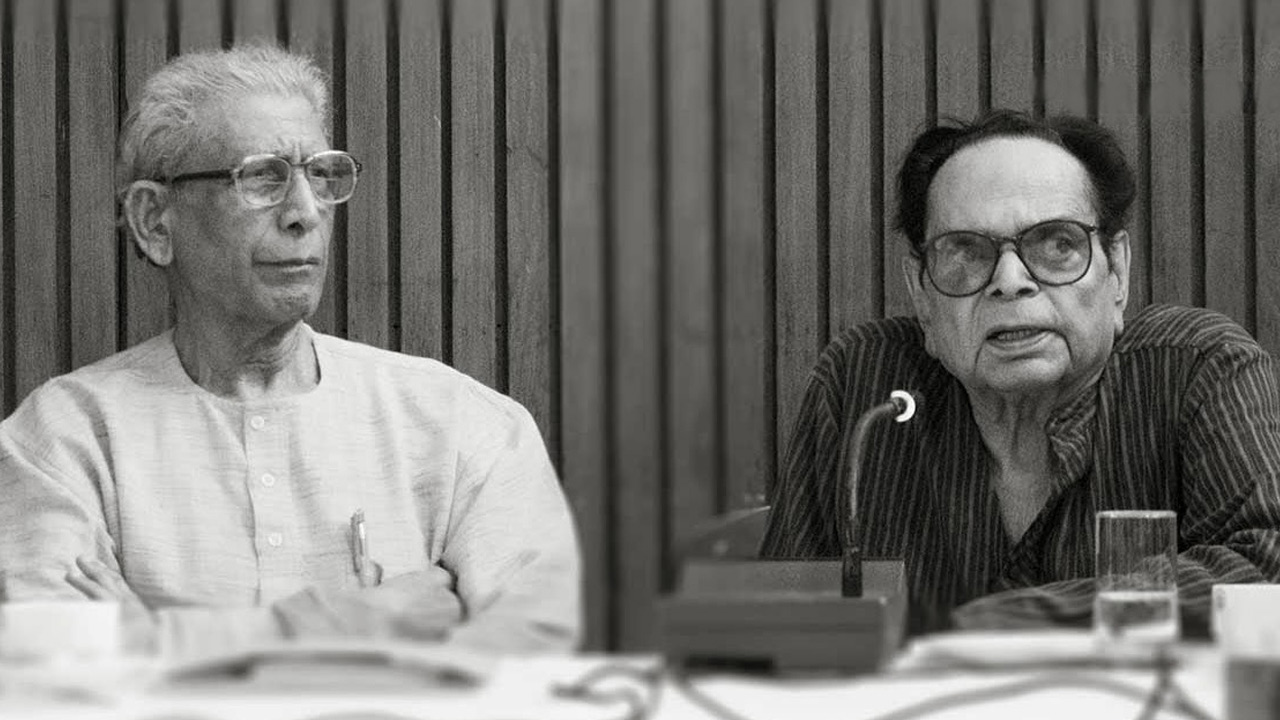No one can deny that Sanjeev, honoured with the Sahitya Akademi Award 2023, is a leading novelist of our times. He was born in a village in the Sultanpur district of Uttar Pradesh a month and nine days before India attained independence. He acquired his education in Calcutta and worked in Kulti, a small town in the Bardhaman district of West Bengal.
Even today, Sanjeev’s literary loyalties and sensitivities lie entirely with the common man. It would not be an exaggeration to say that Kulti has become a place of pilgrimage not only for the litterateurs of the coal belt and Silpanchal, but for the entire literary world. Living, as he did, in the coal belt and Silpanchal, Sanjeev could delve deep and touch the very core of the being of the toilers. Some people may find it an exaggeration but the respect and reverence for Sanjeev in Kulti is rare for a writer anywhere. He now lives in Noida, NCR.
Sanjeev is a contemporary of Uday Prakash and Shivmurti. Of the three, Rajendra Yadav considered Sanjeev only second to Premchand among writers who wrote about villages and small towns. Sanjeev has written more than a hundred short stories. The most talked-about among them include Apradh, Aarohan, Pretmukti, Black Hole and Tees.
Despite not keeping well, he continues to write. His new novel Samudra Manthan Ka Pandrahvan Ratan was published recently by Setu Prakashan. It explores the incongruities and the widespread erosion of values afflicting our times which have become the bane of our society. Money has become god, and relationships, kinships, customs, traditions, the old value system, as well as the fear of societal reprobation have been shattered and scattered.

In his more than a dozen earlier novels, too, Sanjeev depicted the reality of the post-Independence Indian society. The issues and topics that he has explored include deprivation faced by the Adivasis, the caste system, anti-people development, social inequality, opportunism in politics and the future of mankind. He has grappled with problems, questions and mutual contradictions related to all of them. His social concerns are global. His canvas is so wide that after a biographical novel like Sutradhar, he could come out with Rah Gayeen Dishayein Isee Paar, infused with scientific consciousness. Savdhan! Neeche Aag Hai is based on the horrific mine mishap at Chasnala, about 20 km from Dhanbad, on 27 December 1975 that left 375 coal miners dead. Phans (2015) is also one of his key works. It talks about our times, underlining that politics and economics have become the handmaidens of certain sections of society who mandate when a piece of rope will be a tie, a garland or a noose.
In his works, Sanjeev repeatedly laments the demise of democratic values and the growing say of the market in shaping societal behaviour. His main concern is that in an agriculture-dominated India, the character of our villages, farmers and farming is still colonial.
Journalist and poet Prakash Chandrayan says, “Long before the conferring of the Sahitya Akademi Award on him, Sanjeev had become a respected name among the readers of fiction and others. It was a mystery to his readers that he never got what he deserved. Sahitya Akademi has brought itself honour by honouring Sanjeev. He was always recognized by his readers but Mujhe Pahchano has given him institutional recognition. This is welcome. Many commentators have been saying that Sanjeev is a ‘project writer’, that is, he is not creative. Creativity is experimental and experiments are creative. Creative endeavours are new experiments. Even repetitious works have to be presented with some novelty. Coincidentally, Sanjeev dwelt in laboratories as part of his profession and in literature too, he went for experimentation. But his experiments with writing have never been disconnected from reality and have always been imbued with intellectual honesty. The novel Sutradhar is a unique vignette of a people and a period.”
It is true that like Premchand, Sanjeev never eulogized the past. That has given a special kind of maturity and sheen to his works. Sanjeev Sahai, the editor of Hans said, “The award has come too late. Sanjeev should have got it much earlier. He was associated with Hans for many years. That has given us an additional reason to rejoice. He has been my favourite author.”
Author Ranendra says, “Jharkhand and the Adivasi way of life have also been the subject matter of Sanjeev’s works. Three of his novels, Savdhan! Neeche Aag Hai (1986), Dhar (1990) and Paon Tale Ki Doob (1995), feature Jharkhand. The novel Jangal Kahan Tha is about coal mines, Adivasis and the Adivasi way of life and brings to the fore the dire condition of the Tharu Adivasis of Champaran, Bihar. By awarding this people’s author, this backer of the Adivasis, the Dalits and the women, one who etches their pain and their miseries, the Sahitya Akademi has only established its own credibility.”
Sanjeev says, “I become what I write about. I can slip into any mould. Writing is entering another person’s mind. I want to be able to do this and write something which does good to society.”
Writer Ravibhushan says, “It is good that the Sahitya Akademi has recognized the worth of Mujhe Pehchano. It is good that even if belatedly, it has recognized Sanjeev’s value. Better late than never. Sanjeev should have been feted with the Sahitya Akademi award for Jangal Kahan Shuru Hota Hai, Sutradhaar, Phans, Rah Gayeen Dishayein Isee Paar or Pratyancha. Sahitya Akademi has enhanced its own stature by awarding him. It has enhanced its own prestige. The award hasn’t added to Sanjeev’s stature. All the members of the jury deserve thanks and congratulations for taking the right decision.”
Ravibhushan further says, “Sanjeev is an extremely distinguished Hindi writer. He has been writing for the past 50 years without a break. The sweep of his writings is wide. Among contemporary fiction writers, he is the one who does the most extensive research. The new grounds he has covered, the new crops he has sown, are unlikely to shrivel or get destroyed. For him, writing has been a battleground. He belongs to the tradition of Premchand, who used the pen both as a writer and as a warrior, who used his understanding of class to depict the contemporary reality and the reality he wanted to build. From the very outset, his works are imbued with an anger against the system. He is a progressive, pro-change and committed author.
“The society of the Hindi belt and of India as a whole is present in its varied forms in his writings. The jury has done great work in recognizing the worth of Sanjeev’s Mujhe Pehchano. They haven’t feted Sanjeev just for this one novel but has recognized his entire career in writing. They deserve to be congratulated. The Sahitya Akademi has redeemed itself, even if partly.”
Shivmurti and Sanjeev have been quite close. Shivmurti, who is presently in Australia, while congratulating Sanjeev, said, ‘The Sahitya Akademi Award is a tribute to Sanjeev’s ji brilliance as a litterateur. We welcome it. Since the members of the jury keep on changing every year, we cannot blame any particular person or a group of people for denial of recognition to him. As Kabir said, what has happened, has happened. Whenever you awaken, it is a new beginning. Making the right selection adds to the glory of the selectors. And that is exactly what has happened with this selection.”
Arun Dev, editor of Samalochan magazine, said “Senior writer Sanjeev getting the Sahitya Akademi Award 2023 for Hindi for his novel Mujhe Pehchano is a kind of compensation. He should have got it much earlier. The jury has taken the right decision. Honouring the deserving only adds to the credibility of the institution. And it also adds to the reputation of the award. Another point I want to make is that the cash component of the award should be increased. It should be at least Rs 10 lakh so that the awarded authors can use it to meet their needs for at least some period.
“Sanjeev’s Mujhe Pehchano relates an amazing take on the struggle between the common man and those in power. It can help us understand the present. I can understand the bitterness that pervades the novel. This is an achievement for the genre of Hindi novel.”
(Translation from the original Hindi by Amrish Herdenia)
Forward Press also publishes books on Bahujan issues. Forward Press Books sheds light on the widespread problems as well as the finer aspects of Bahujan (Dalit, OBC, Adivasi, Nomadic, Pasmanda) society, culture, literature and politics. Contact us for a list of FP Books’ titles and to order. Mobile: +917827427311, Email: info@forwardmagazine.in)





